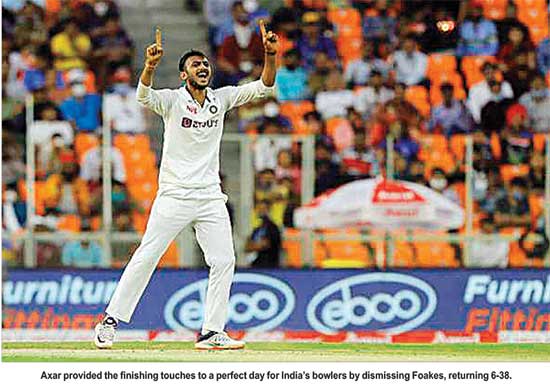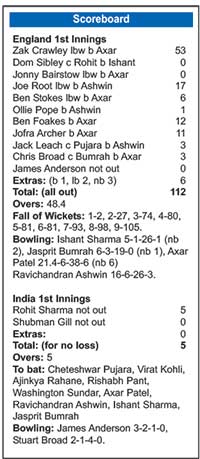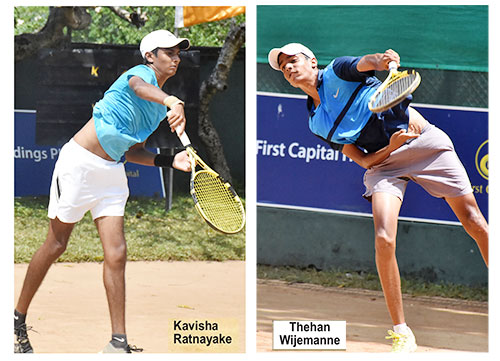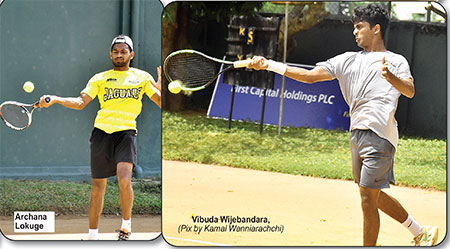Sports
The Colombo Oval and I

by S. Skandakumar
The majestic Oval scoreboard clock showed ten minutes to three on a Sunday afternoon when our final wicket fell. We had conceded first innings points by a small margin to Moors in a P. Sara Trophy encounter.
The year was 1973 and it was my first game for the club. The many Moors supporters hugged each other and left the venue to return to Braybrook Place to celebrate. With just half an hour left to tea, and two hours thereafter to the end of the game, their optimism was justified.
In our dressing room our skipper Benedictine Tony Appathurai had other ideas. “I want five by tea,” he thundered as he briskly led us back on to the field for that half an hour. I admired his arrogance!
We came back for tea with Moors tottering at 11 for 4! Johnian Sooriakumar and Josephian Viji Johnpillai produced an inspired opening spell.
Immediately after the tea break Tony handed the ball to me whispering ‘finish them off’.
Forty five minutes later, the final Moors wicket fell with their total at 19, and I had the flattering figures of five overs three maidens two runs four wickets!
We knocked off the required thirty odd runs for the loss of one wicket. Tony insisted that I went in at three to make the winning hit. We were home by nine wickets with time to spare and so began my memorable forty seven year association with the finest sporting and social club in Colombo!
Appreciation
Having watched International cricket at the Oval as a schoolboy from the Gandhi stands, queuing up from 4 am to get a ticket, the experience of playing on that hallowed turf was magical.
Prior to that, it was twice in successive years (1965 and 66) in the Royal -Thomian and once in the Gopalan Trophy, (1970) and yet now I was there with an identity. Yes I belonged to that great venue!
More than four decades later my heart still warms to that genial gentleman, and outstanding administrator cum sportsman P. Saravanamuttu whose vision for sport in general for the country and cricket in particular gave birth to that awesome cricket ground and stadium that came to be known as the ‘Colombo Oval’ in 1940.
The only venue in Sri Lanka which for over three decades provided facilities for Public Schools Athletics Meets, National and International Hockey Tournaments, Schools ‘big matches’ and International Cricket.
A selfless act of the Tamil Union in the best interests of National Sport. I felt a surge of pride to be a member!
Personal Challenges
In 1976, at my peak as an off-spinner cum batsman I went down with a virulent attack of Hepatitis that put paid to my chances of playing for Sri Lanka.
I followed medical advice to the letter to stay away from strenuous physical activity for three years and in 1979 made my way back cautiously into the club’s cricket scene at Division 3 level under the evergreen Josephian stalwart Felix Perumal (currently Club Patron) as skipper of the ‘Daily News’ Trophy team.
We emerged runners-up and during that period, initiated by Benedictine Selva Perumal, we pioneered the influx of talented young cricketers from the south to the club and to competitive cricket in Colombo.
The lads were understandably shy and unsure of themselves at first in an English- speaking environment as the Tamil Union then was. It was refreshing to see how the Colombo schoolboys at the nets rallied round to help them overcome this initial handicap and soon we saw the emergence of a cohesive, confident and strong combination of players.
Yes, the club’s unwritten rule for equal opportunity led to many young cricketers from modest backgrounds achieving their full potential, while the exceptional among them reached stardom!
Sadly the pool of talent in the north was beginning to dry up at this time as painful events began to take hold of that otherwise tranquil area and its gentle, affectionate people.
Progress
After a season at Division 3, I felt ready to move up and found a place in Josephian Rajiv Benedict’s Division 2 team vying for the “Donovan Andree” trophy in 1981.
Rajiv was a revelation on the playing field. Fiercely competitive, he bemused many a batsman with his very late in swing and amused the genial umpires of that vintage with his aggressive show of exasperation whenever an appeal of his for a wicket was turned down.
The season, needless to say, was most enjoyable and if my memory serves me right we clinched the trophy that year.
With Royalist Rohan Jayasekera, the P. Sara team captain migrating to Canada mid -season in 1981, I was yanked out of Rajiv’s team and placed in charge of a very young and talented Division 1 team.
The players showed their approval of my appointment in my very first match as captain against the Police at the Park, when our openers Josephian Wayne Jansz and Mahindian Athula Samarasekera broke a long standing record for the first wicket held by Moors’ Makeen Salih and Herbie Felsingher of 352 runs! A remarkable achievement indeed for two youngsters barely out of school!
At age 35, the following year 82/83 was my only full season as captain and player, and was memorable for more reasons than one.
The team and squad comprised of boys from Royal, S. Thomas’, St. Joseph’s, Ananda, Isipathana, D.S Senanayake, Thurstan, St. Peter’s, Prince of Wales, and Mahinda.
The atmosphere in the dressing room throughout the season was one of amazing cordiality and good humour while on the field it was serious endeavour.
‘ P. Sara’ had given way to the ‘Lakspray Trophy’ that year as the game needed sponsorship modest though it may have been. As it was the inaugural year for that trophy, we were eager to win it and repeat history to match our peers who annexed the P. Sara Trophy in its initial year.
We lost it to Bloomfield on a scorer’s lapse by a margin as infinitely small as 0.15 points when scorebooks were unprecedentedly opened after the tournament was concluded. That lapse made in the very first match of the final round in recording penalties for slow over rates went undetected throughout the rest of the season!
However, each of us who played in that team will forever look back on that season and say with pride that ‘we won that trophy on the playing field and conceded it off it to uphold the spirit of the game’
Headlines such as ‘Tamil Union’s Mathematical Magic’; ‘Tamils do the Impossible’ and ‘Tamils Worthy Champions’ told their own story of how that final game in the tournament was planned and executed!
Exhausted mentally and physically at the end of that memorable season, I then turned my attention to tennis at the club which in the ensuing years became almost a daily ritual inspired by competition of an enjoyable nature from like minded fellow members.
Recognition of the Club
In 1981, Sri Lanka’s admission as a full member of the International Cricket Council as a ‘Test playing nation’ was very much on the cards and was conditional upon the availability of an appropriate venue.
The Oval was the only venue that met the standards stipulated by the ICC when the application was tabled in London at Lord’s that year.
Appropriately the first ever Test match versus England was played at the Oval in February 1982, opening a new and exciting chapter in the nation’s cricket history. Happily three years later the first ever Test win was also registered at the same venue when India were humbled.
The blessed turf for decades was nursed with motherly care by the only grounds women the world had known at that time, Mari Amma (Mary) and her daughter Innasi Amma. In later years, Amaravathy and her sister Saroja continued the excellent work under the supervision of Head Groundsman H.D Jayasena.I was privileged to be Hony Ground Secretary when the ‘Inaugural Test’ was played in 1982.
The Setback
A year and half later, the events of ‘July ‘83’ had a devastating impact on the club and its premises. The main pavilion suffered extensive damage and valuable records and photos were irretrievably destroyed. A contribution from the Colombo Cricket Club was the only gesture of financial goodwill the club received at that time.
The then Cricket Board’s silence was deafening! A monumental tragedy for a club that provided so much for cricket in particular and sport in general for the country.
Gifts of cricket equipment were received from the High Commissions of England and Australia.
The Revival
In the club’s centenary year in 1999-2000, which coincided with the new millennium, a re-development programme was pursued in earnest.
As club President in that period, I was fortunate to have office bearers as dedicated as the players I had in 1982/83 when I led the club’s Division 1 cricket team. The general committee provided excellent support to me to put into effect the programme of activity aimed at the resuscitation of the club. Well wishers both in Sri Lanka and overseas contributed generously to swell the Development Fund. Donations from overseas- based members and well wishers from the US, UK, Emirates, Botswana, Zambia, Australia and New Zealand were proof, if indeed proof were needed, of their appreciation of the service that the venue had provided for the cause of sport over the decades.
A quote from a letter from the then CEO of the England and Wales Cricket Board Tim Lamb merits recording.
His letter reads:
“We recall with sadness the events of 1983 and their impact on your stadium because I know that the ‘OVAL’ to Sri Lanka Cricket was in many ways what Lord‘s is to us today. I have no doubt that you will receive the fullest support in your efforts to restore the stadium to its former glory “
The initiatives to re-vitalise the club in 1999/2000, were taken to greater heights by succeeding Presidents and their committees.
What we have today is a tribute to their perseverance, commitment and generosity in terms of their time and resources as also that of our sponsors and well wishers over the years. The Cricket Board’s support merits special mention.
The contribution of our sportsmen in the centenary year also merits mention.
Our cricketers annexed the championship of three of the four tournaments conducted by the Cricket Board (Premier Limited Overs, Under 23, and Div 2 Donovan Andree while ending runners-up in the fourth viz the Premier Division 1 League)
Our Tennis stalwarts not to be outdone annexed the Veterans All Island over 55 singles and doubles titles rounding off a unique year for sport at the club.
To the incoming members and those who have joined in recent years, I say acquaint yourselves with the proud history of this great institution which has stood unwaveringly for all that is fair, just and equal in its every endeavour. When it is your turn to take office remember what has gone before you, and never forget the responsibility you have to maintain its rich traditions and above all its cherished reputation.
“Today is what it is, and tomorrow what it might be, simply because of all the yesterdays.” For me, the forty seven year association with the Oval, has indeed been “A Rewarding and Emotional Affair to Remember”
- News Advertiesment
See Kapruka’s top selling online shopping categories such as Toys, Grocery, Flowers, Birthday Cakes, Fruits, Chocolates, Clothing and Electronics. Also see Kapruka’s unique online services such as Money Remittence,News, Courier/Delivery, Food Delivery and over 700 top brands. Also get products from Amazon & Ebay via Kapruka Gloabal Shop into Sri Lanka.
Sports
Imran steals the show!

(This article by The Island’s respected cricket columnist Rohan Wijeyaratne first appeared in these pages 16 years ago; on the 11th of June 2005. As World Cup winning former captain and current Prime Minister of Pakistan Imran Khan has just visited the island, we reproduce this article in today’s edition)
In my youth – which is to say, quite a long time ago – I would often go to the YMCA canteen for a snack and a tea after whatever business that brought me to the Fort. Doing the same recently more for old times sake than anything else, I saw a familiar figure ahead of me heading in the same direction. Quickening my step and drawing abreast, I introduced myself to the gentleman concerned. He was none other than my old school English teacher, V. Thanabalasingham.
Not just a teacher, but an Institution
Those of you who may have passed through the portals of Ananda College during the 1960s and the early 70s and no doubt been well rounded in many ways, will admit to a man that when it came to the teaching of English, the name Thanabalasingham held no peer. In his prime, he was not just a brilliant teacher but an Institution. And volumes wouldn’t suffice to do him justice – such was the impact he made on all whom he touched, be it with the brilliance of Thackeray, Dickens, Chaucer or the Direct Method English Course that served as our bread and butter in English education at the time.
Another, from a different mould
Another teacher from an entirely different mould was Upali Ratnayake, now the Executive Director of CIMA. At the time he was introduced to us at the ‘A’ level stage, he appeared to our free spirits a cut above the rest. He acquired this status by doing exactly the opposite of what he was expected to do, which was to teach us English as a preparatory step towards an easier passage through University. Upali Ratnayake actually taught us nothing. Yet we learnt a good deal off him, discussing almost everything other than the subject he was paid for! His most endearing virtue was that he never spoke to us from a great height. And in that process, he taught us one of the most lasting lessons in life.
Several decades later, I nearly fell off my chair to receive a phone call from him inviting me to the BMICH on the 28th of May where Imran Khan and Kumar Sangakkara were due to speak at the CIMA Global Leaders Summit. The topics for discussion were “Passion for Perfection” and “Ordinary people in extraordinary acts.” The topics and the speakers seemed irresistible. And so I went.
What a speech!
I wasn’t disappointed. Neither were hundreds of others present. And predictably, Imran stole the show. Blessed with a presence that would have put any Grecian god to second class status, this tall, elegant and immensely handsome man spoke with such brilliance, clarity and articulation, the end result was as gripping as it was inspiring. In his wake, those who followed appeared cumbersome and dreary, almost like how Kenny Mackay would appear after the brilliance of a vintage Sobers or a Dexter! Kumar Sangakkara having to make do with less time than was his rightful share went largely unheard, tending to speak more to his fellow panelists than his audience. He will learn. As a probable hot contender to the top post after Atapattu, there will be many more occasions where he will be required to speak in public.
“Ambition must be upgraded, never downgraded”
Imran was of the view that all humans were endowed with limitless potential. Their limits if any, were often self imposed. Those who achieved extraordinary heights were those who dared to go beyond their self imposed limits. They thought big, dreamed big and did not allow their limitations to get in the way of achieving their dreams. He drew parallels from his own experiences in cricket, his cancer hospital project and his involvement in national politics to establish the point.
The four secrets
Starting with cricket, and drawing parallels with other legends including Zaheer Abbas, Imran stressed the need for a clear vision, the hunger to succeed, the willingness to sacrifice and self belief as being the four secrets to achieve one’s vision. Self belief was a factor which Abbas, despite all his God given gifts, had in very short supply. Imran, on the other hand, was full of it (sometimes foolishly!), because he never thought he ever could lose a game each time he stepped on to a cricket field. He gave many examples of it, including the victories against the might of the ‘invincible’ West Indians in 1986 against all odds. And that, despite having requested and got, ‘neutral’ umpires in a home series in Pakistan! He just wanted to make sure that when they won, there would be none to say that the umpires had anything to do with it!
Drawing from examples of his own life, Imran said that in all one’s life, one would hear others say why something cannot be done. That if accepted, would be the start of everyone’s downward spiral. Ambition he said, must be upgraded, never downgraded. And the more you pit your mind against the winds that resist you from reaching your ambition, the stronger your mind will become. Therefore, ambition must take precedence over everything. And towards achieving that, one should be willing to sacrifice anything. “Compromise” said Imran “for your vision, but never ever on your vision.” Great words!
Why the 3rd world is the 3rd world!
Relating what made him take to politics, Imran said that the problem with the third world was that the ruling elite would put itself above the law and deprive the ordinary folk of any justice. Hence his political movement was primarily meant to establish the rule of law in his country, where the weak and the strong were equal in the eyes of the law. “No society in the history of mankind has ever progressed without the rule of the law. The reason why the third world remained the third world was because it had very poor rule of the law. The elitist types did whatever they wished and got away with it, while the common man and the small and medium industrialist were all deprived of justice.” None could have spoken a truer word!
The ways of the mafia
Imran went on to say that when fighting for the rule of Law, one would be pitted against entrenched vested interests; the most powerful elite in the country. These were those who could buy justice. In Imran’s case, these were men who were also his good friends. Yet he preferred to take on the mantle of a social pariah instead, preferring to stand steadfast to his vision. The mafia usually reacts in such situations in either of two ways. They would either eliminate you or make you join the system. Just five months after his party was formed, he was offered 30 seats in Parliament out of 270. Imran refused, because he realized he had no chance of winning against entrenched political families that controlled his country. He knew the moment he joined them, he would need to compromise with his vision. So he refused, and got wiped out at the elections.
Refusing the Prime Ministership of Pakistan
When General Musharaff took over with Pakistan’s fourth military dictatorship in its brief history, he made all the right noises such as ridding the country of “sham” democracy and so on. No sooner Musharaff formed his own party, Imran was yet again invited, this time to become the Prime Minister of Pakistan. “But when I discovered that joining his coalition meant joining the biggest crooks in the country,” he had no difficulty in refusing. He was chided for his decision by many who argued that he could have joined and then fixed things up. But Imran said the decision was easy to make, as his vision was very clear. And it was one’s vision that decided when to compromise and when not to.
Imran’s vision
Imran’s vision was an independent and credible judicial system in Pakistan. So he asked himself the question, could General Musharaff afford an independent judiciary? The answer to him was obvious. If such a judicial system prevailed, most of the powerful men in his country would be tried for treason under article six of the country’s constitution. The sentence for treason was death. And he was therefore convinced that neither Musharaff, nor those around him could afford an independent and credible judicial system. And so, with his firm “No” Imran watched his party being destroyed yet again, to one seat, in parliament. This time it was by General Musharaff himself.
(To be continued tomorrow)
Sports
Spinners give India early advantage in third Test

Indian spinners shot England out for just 112 inside two sessions with Ravichandran Ashwin and Axar Patel sharing the spoils after pacer Ishant Sharma opened the floodgates in his milestone 100th match on the opening day of the day-night third Test in Ahmedabad yesterday.
England were all out for 112 in 48.4 overs in the second session on a spin-friendly Motera pitch with Patel (21.4-6-38-6) grabbing his second five-for in his second Test while Ashwin (16-6-26-3) took three.
Openers Rohit Sharma (5) and Shubman Gill (0 ) negotiated five overs to take India to five for no loss at the dinner break.
 Gill, however, survived after TV umpire ruled him not out in the third over after England claimed for a catch.
Gill, however, survived after TV umpire ruled him not out in the third over after England claimed for a catch.
Ishant, only the second Indian fast bowler after Kapil Dev to play in 100 Tests, fittingly took India’s first wicket in the third over as he dismissed opener Dominic Sibley for nought.
Thereafter, it was all an Ashwin and Patel show as the duo bamboozled the England batsmen to complete the submission, except for the other opener Zak Crawley, who hit an eminently delectable half-century. Six English wickets fell in the second session.
England did not have any substantial partnership with the 47-run stand for the third wicket being the highest. They lost their last seven wickets for just 38 runs.
Crawley’s brilliance was, however, neutralised by the Indian spinners as England were left reeling at 81 for four going into tea after an exciting opening session in the pink ball Test.
Two wickets fell in as many overs after the resumption of the second session, with Ashwin and Patel taking one each, to reduce England to 81 for 6.
Ashwin sent Ollie Pope’s (1) off-stump cart-wheeling with a beauty of a delivery, bowling round the wicket, before Patel trapped Ben Stokes (6) LBW in the next over with a ball that spun in.
Jofra Archer (11) did a tad better as he hit a four in the second ball he faced and another boundary off Ashwin. But, Patel had him soon, cleaning up his off-stump to send England innings into a mess.
England’s rapid slide continued with Jack Leach edging one to the gully where Cheteshwar Pujara took a low catch off Ashwin, though the TV umpire took time to confirm the decision.
Crawley’s effort was the only silver lining for England. Having missed the first two Tests due to a freak wrist injury, the stylish right-hander’s driving was elegance personified as he hit ten boundaries during his 84-ball 53.
Sports
Top players secure third round places

SSC Open Ranking Tennis
Thehan Wijemanne, Kavisha Ratnayake, Vibuda Wijebandara, Savith Weerasinghe, Kiran Viravanathan, Archana Lokuge advanced to the men’s singles third round at the SSC Open Ranking tennis tournament on Tuesday.
Some of the leading players fighting to improve on their impressive performances produced at the Tennis Nationals and the Colombo Championships during recent weeks knocked out their opponents easily to secure third round places.










